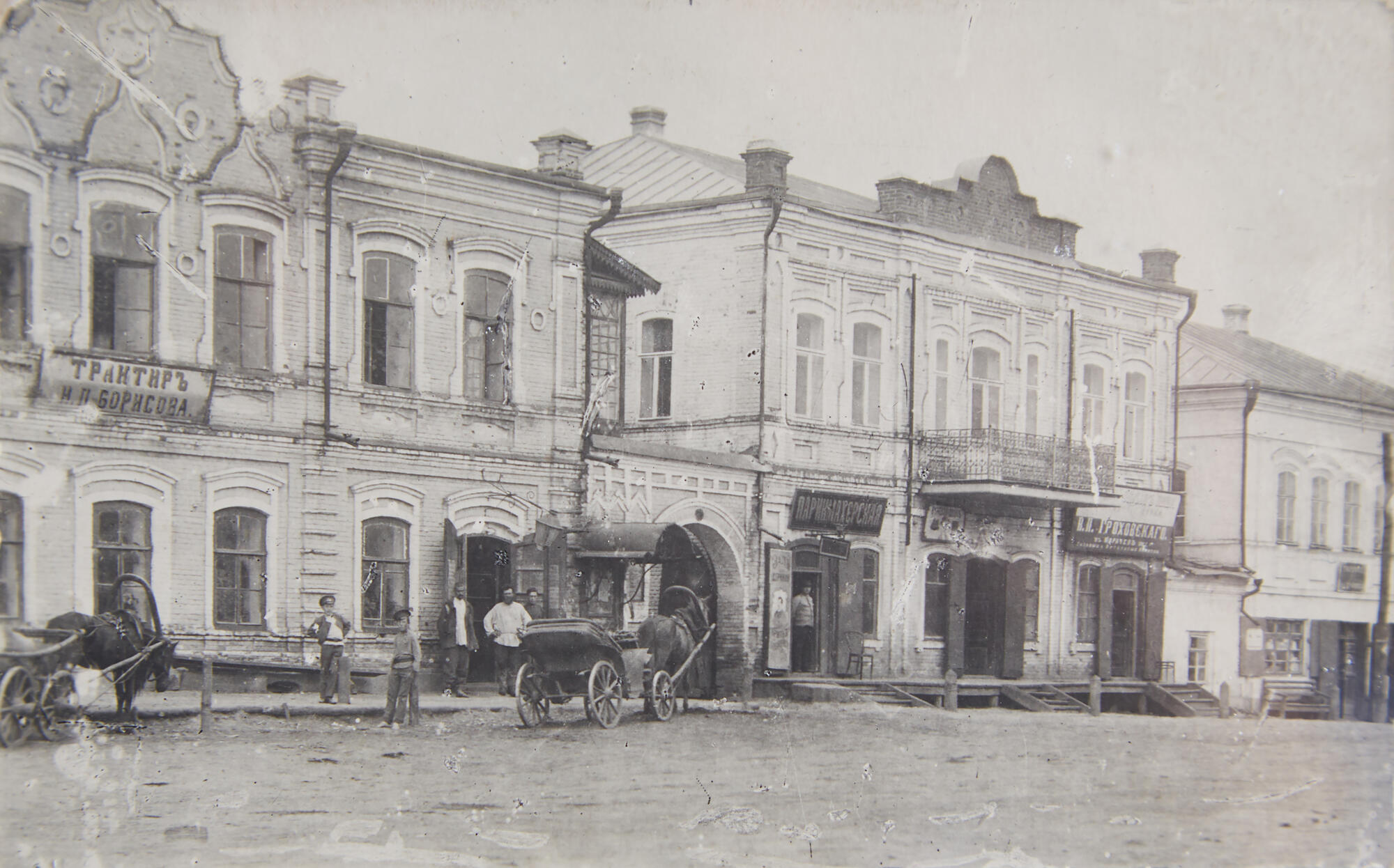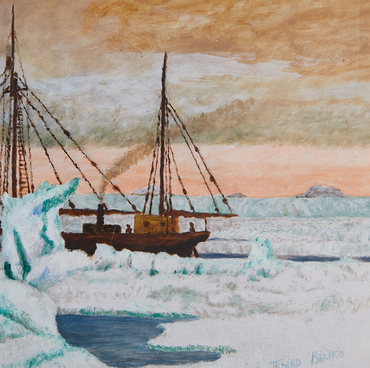The postcard from the collection of the Rusanov House Museum depicts the town of Dmitrovsk, the hometown of Lyubov Dmitriyevna Neustruyeva, the mother of Vladimir Aleksandrovich Rusanov.
The future city received its name from its founder — the Moldavian ruler Dmitry Kantemir. In 1711–1782, the village was called Dmitrovka (or Dmitrievka). In 1782, it received the status of a town and became known as Dmitrovsk. In 1797, the city was downgraded to a village with the former name of Dmitrovka. In 1802, Dmitrovsk was returned to the status of a town with the corresponding name.
In 1928, the Central Black Earth Region was formed, which included the territories of several former governorates, including Oryol and Kursk. On the territory of the Central Black Sea Region, 45 kilometers apart, there were two towns with similar names: Dmitrovsk (the former Oryol governorate) and Dmitriev (the former Kursk governorate). To avoid confusion, it was decided to add appropriate definitions to the names. Dmitrovsk at that time was part of the Oryol district of the Central Chernobyl region and received the clarifying name “Orlovsky”, and Dmitriev was part of the Lgovsky district and received the clarification “Lgovsky”. In 1944, the towns were attributed to different regions, but the historical name of Dmitrovsk was returned only in 2005.
Lyubov Dmitriyevna Neustruyeva, the mother of
Vladimir Rusanov, was from the district town of Dmitrovsk. She finished the
Oryol grammar school, then went to study in St. Petersburg, but the lack of
money compelled her to return to Oryol. Her marriage to a merchant of the
second guild Alexander Dmitriyevich Rusanov was a failure. After her husband’s
death, she had no means to support herself and her young son. All the numerous
relatives of her husband did not accept Lyubov Dmitriyevna, and when the
fourteen-year-old Vladimir was apprehended by the police for freethinking,
which merchants believed to be worse than theft and robbery, Neustruyeva became
a complete outcast. When Vladimir was arrested, all family ties were severed.
The mother firmly resolved to provide her son with a good education and instill
in him the spirit of a citizen and a fighter. She did not interfere with his
revolutionary activities and even helped him. After Rusanov graduated from the
Seminary, Lyubov Dmitriyevna endured numerous humiliations and devoted
considerable effort to obtaining a document that, at least to some extent,
could help her son enter the university. She mourned her son’s death but
accepted it stoically and devoted her attention and care to her grandson.


